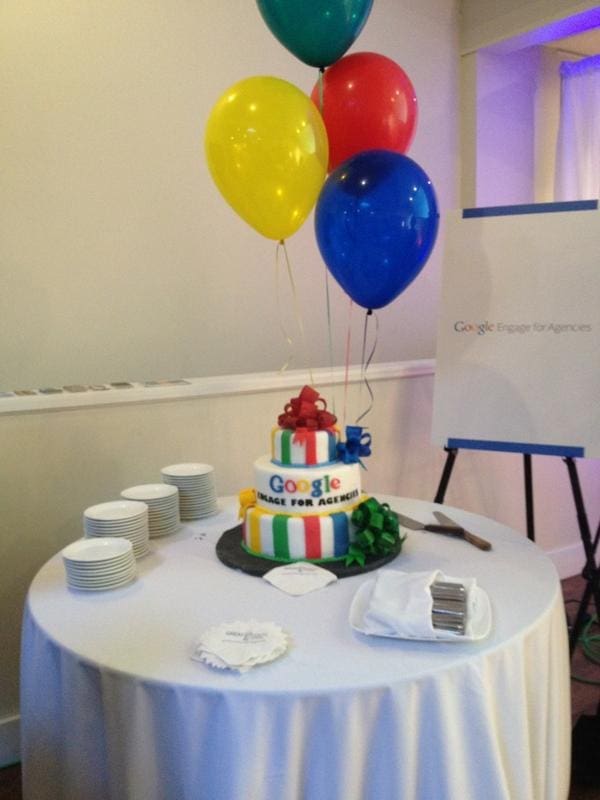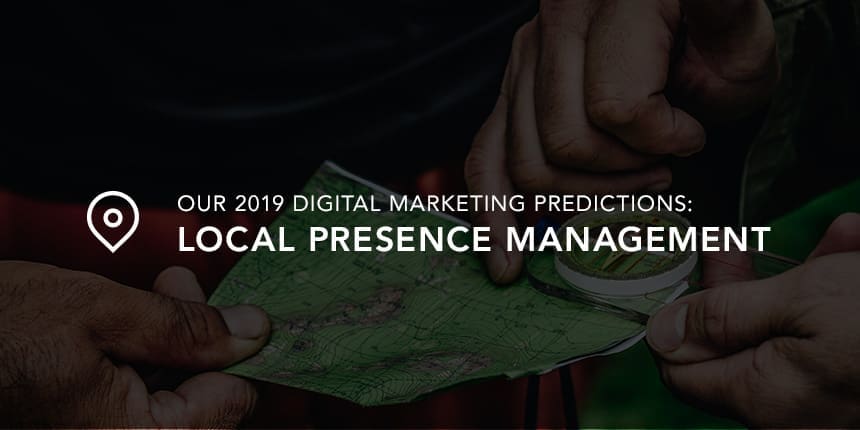
 5-huge-changes-coming-to-local-sear...
5-huge-changes-coming-to-local-sear... 
The specifics of local search have changed mightily since we sat down to write last year’s LPM predictions. In November 2017, most marketers were taking a desktop-first approach and worrying about citations. They didn’t yet have a full sense of the importance of reviews—and they weren’t really paying much attention to voice search at all.
But so much changes in a year. As ever, it’s important to understand the past as we look forward to the future and try to predict how corporate giants like Google, Facebook, and Apple will mould the local search ecosystem. Brands that want to navigate this landscape successfully will need to embrace change and continue to innovate, so here are our top five predictions for Local Listings Management in 2019.
-
Apple Maps will steal some of Google Maps’ market share
Apple has been working incredibly hard to improve their maps channel, incorporating detailed satellite imagery and adding a vast amount of information on vegetation and local businesses. Benefiting from an improved user experience and its status as the default map on iPhones, we can very easily see more and more consumers moving over to Apple Maps.
Brands with distributed local footprints will need to ensure that their business information is listed properly on all online maps. Google Maps alone is no longer enough for businesses who are serious about capturing every possible lead.
-
Voice search will start to move beyond command-based actions
Voice assistants like Alexa, Siri, Cortana, and Google seem to improve almost daily—and users are beginning to expect more. Right now, people use voice assistants to “turn on the lights” or “play Justin Bieber on Spotify”, but in 2019 we could easily see people asking much more. Questions like “what’s the right mattress for me?” and “should I get an electric or manual toothbrush?” will result in much more credible, detailed, and personalised answers.
When people start to trust the recommendations of voice assistants, the latter will pass the tipping point from command-based entities to true personal assistants. Brands that earn a place as the single recommended solution to a problem—with a transaction that takes place entirely via voice—will be the true beneficiaries of this revolution.

So, what should your business be doing now? Ensure that you build a future-ready voice search strategy that focuses on Skills/Actions, structured data, integrated partners, and reputation management.
-
Google Duplex will streamline how businesses update information online
Google My Business is already asking business owners if they are comfortable getting calls from an AI entity called Google Assistant. We think this is a precursor to Google Duplex calling business owners to verify information like holiday hours, menu pricing, or attributes. This will mitigate Google’s need to rely on business owners logging into GMB or utilising the GMB API to pass through their business details.
In other words, Google is going to take an active role in generating business details for businesses instead of waiting for them to be provided by local guides or the businesses themselves. Google will depend less on third-party data once it starts to generate location data for itself, signalling a massive reduction in the importance of citations.
-
Google Posts will roll out to multi-location brands on a paid basis
Google has always been in the business of making money and, in recent years, local search has been subject to several Google’s monetization initiatives. Right now, there are paid ads in the Knowledge Panel, on the map itself, and even in the local pack.
It would not surprise us at all if Google rolls out Google Posts for businesses with more than 10 locations—but, in the process, puts access to this product behind a paywall. Just like businesses buy ads on Google, you’ll need to finance your Posts to do them in bulk.
Of course, Google Posts are currently free, but we don’t think it’s much of a stretch to think Google will monetise them and look to capture revenue directly from business’s Knowledge Panels. This represents not only a new revenue stream to keep Google investors happy, but also a new medium for businesses to sponsor content to engage and influence consumers.
-
Google will switch more Knowledge Panels to a pay-to-play format
The hospitality industry has long been used as a testing ground for Google Knowledge Panels. In fact, Google denies the hospitality industry the normal tools they provide to every other type of business for direct searches of their brand. For example, hospitality brands are unable to use Google Posts or link to an appointment/booking URL in their Knowledge Panel.
But that’s not all. Hotel Knowledge Panels are driven by an ad system wherein hotel owners must bid via a room rate commission fee called “Google Hotel Ads” instead of bidding on a keyword in the conventional sense. That’s right—hospitality brands need to bid in their own Knowledge Panel!
Unfortunately, we expect Google to apply this system in other verticals. It wouldn’t surprise us to see the insurance, automotive, or home/garden categories moved to a more monetised state on Google. Brands in these industries will have to figure out how to get users off Google and on to their own websites in a way that doesn’t generate a premium.
Keep doing what you do best
There’s no question that 2019 represents yet another huge year for local search. Google has already stated that 46% of searches have local intent, which cements local’s status as a lucrative channel for marketers and brands. Businesses that prioritise customer service and innovation—and figure out how to drive direct searches for their brand name—will position themselves for success.
We all must play nicely in the arenas that Google, Facebook, Apple, and Amazon have built for us, but it’s possible to stay ahead of the curve if you simply focus on what makes your business great. As for all your digital marketing goals? We can help. Contact DAC!.

